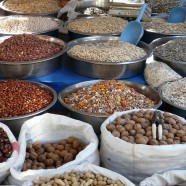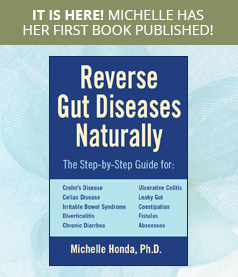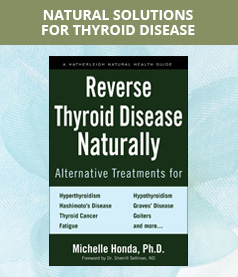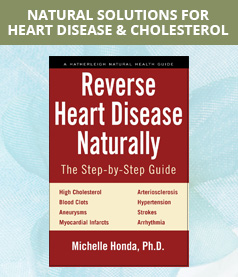
Whether you are a vegetarian or simply want better protein choices and to know exactly where your individual amino acids are sourced from…the following information is a guide to assist in reaching ones protein goals. Examples of the highest food sources are also shown. The form and quantity will undoubtedly change the amounts of amino acids and protein per serving.
Fruits have essential amino acids, though in lower amounts per milligrams with exception to berries such as the Acai, Aronia, Goji and Wolfberry, whereby containing most if not all essential amino acids. These berries and others similar in nature are not included in the below list, mainly because they are generally not easily obtained.
As an approximate guide most of the vegetables, grains and nuts listed have amino acids ranging from 100 to over 2000 milligrams (based on a 200 calorie serving) whereas the fruits listed will have lower amounts per milligrams.
The general consensus is not consistent when it comes to whether or not soy is limiting in the amino acids methionine and cysteine. Be sure to include additional foods with these amino acids if you suspect any inadequacy of these two elements.
Another factor to consider is the form in which the food is in. Nuts and seeds are highly concentrated in nutrients compared to the aerial parts of the plant. Also, bear in mind, the raw state opposed to a cooked variety.
Take into account the nutritional value of the foods listed, to ensure adequate amounts of protein, amino acids, essential fatty acids and mineral and vitamin content when creating a nutritious meal.
Essential Amino Acid High-Content Plant-Based Foods
Examples follow each amino acid food list as a guide for content:
*Based on 200 calories
L-Isoleucine
alfalfa seeds
almonds
apples
apricots
avocados
baking yeast
bananas
blueberries
Chinese cabbage
cranberries
dates
horseradish tree (the leafy tips)
kidney beans
kiwi
oranges
peaches
persimmons
plantains
pumpkin leaves
rice
seaweed
sesame seeds
soy
spinach
swiss chard
sunflower seeds
watercress
wheat
Soy protein 2650 mg
Watercress 1691 mg
Chard 1540 mg
Sunflower seed flour 1474 mg
Spinach 1322 mg
Kidney beans 1297 mg
L-Leucine
alfalfa seeds
apples
apricots
avocados
bananas
blueberries
dates
figs
guavas
horseradish tree (the leafy tips)
kidney beans
kiwi
olives
peaches
peanuts
pears
persimmons
pumpkin leaves
raisins
rice
seaweed
sesame seeds
soy
sunflower seeds
turnip greens
watercress
Soy protein 4226 mg
Watercress 3017 mg
Tofu 2500mg
Alfalfa seeds raw 2322 mg
Sesame flour 2307 mg
Kidney beans 2103 mg
Sunflower seed flour 2148 mg
L-Lysine
amaranth
apricots
avocados
bananas
buckwheat
dates
guavas
oranges
peaches
parsley
pears
plantains
plums
seaweed
soy
tamarinds
watercress
watermelon
wheat
Soy protein 3319 mg
Watercress 2436 mg
Tofu 2253 mg
L-Methionine
apricots
avocados
blueberries
cantaloupe
figs
grapes
guavas
kiwi
olives-ripe
oranges
peaches
pears
persimmons
plantains
plums
raisins
rice
seaweed
sesame seeds
whole wheat
Sesame flour 994 mg
Seaweed spirulina 908 mg
Soy protein 690 mg
* (note the level of methionine in soy is low)
L-Phenylalanine
almonds
amaranth leaves
apples
apricots
avocado
bananas
broccoli rabe
cottonseed
dates
elderberries
figs
grapefruit
horseradish tree (the leafy tips)
kidney beans
lupin seeds
olives-ripe
oranges
peaches
peanuts
pears
persimmons
pigeon peas
plums
pumpkin leaves
raisins
rice
seaweed
sesame seeds
skunk cabbage
soy
spinach
star fruit
swiss chard
sunflower seeds
turnip greens
watercress
whole grains
Soy protein 2862 mg
Cottonseed flour 1870 mg
Sesame flour 1596 mg
Kidney beans 1473 mg
Spinach 1428 mg
L-Threonine
alfalfa seeds
apricots
avocados
bananas
dates
figs
guavas
horseradish tree (leafy tips)
kidney beans
nuts – some
peaches
pears
pumpkin leaves
raisins
rice
seaweed
sesame seeds
skunk cabbage
soy
soybeans
spinach
sunflower seeds
turnip greens
watercress
wheat
Watercress 2418 mg
Soy protein 1755 mg
Spinach 1496 mg
Sesame seed flour 1250 mg
Sunflower seed flour 1202 mg
Kidney beans 1230 mg
L-Tryptophan
apples
apricots
amaranth leaves
asparagus
avocados
bamboo shoots
beet greens
broad beans
broccoli
broccoli rabe
brussel sprouts
cauliflower
celery
chia seeds
chicory greens
chinese cabbage
chives
collards
corn
cottonseed
cucumber
dates
figs
garlic
green peas
green and red peppers
green and yellow snap beans
guavas
hearts of palm
hot chili peppers – some
horseradish tree (leafy tips)
kale
kelp
kidney beans
kiwi
lettuce (red leaf, butterhead, iceberg)
lima beans
mung beans
mushrooms
mustard greens
navy beans,
oat bran
okra
onions
oranges
parsley
peaches
peanuts
persimmons
pinto beans
potatoes
plums
pumpkin
pumpkin leaves
radicchio
radishes
raisins
rice
savoy cabbage
sesame seeds
seaweed
soybeans
spinach
sunflower seed
swiss chard
taro leaves
tomatoes
turnips
turnip greens
watercress
winged bean tubers and leaves
winter squash
zucchini
Soy protein 695 mg
Spinach 690 mg
Sesame flour 659 mg
Sunflower seed flour 451 mg
Watercress 544 mg
Turnip greens 400 mg
Broccoli rabe 390 mg
Asparagus 322 mg
Kidney beans 303 mg
Oat bran 280 mg
L-Valine
apples
apricots
avocado
bananas
blueberries
broccoli rabe
cranberries
cottonseed
guavas
horseradish tree (leafy tips)
kidney beans
kiwi
mushrooms
olives – ripe
oranges
peaches
peanuts
pears
persimmons
pumpkin leaves
raisins
rice
seaweed
sesame seed
skunk cabbage
snap peas
snowpeas
soy
spinach
sunflower seed
turnip greens
watercress
whole grains
Soy protein 2554 mg
Watercress 2491 mg
Sunflower seed flour 1703 mg
Sesame seed flour 1682 mg
Snow/snap peas 1595 mg
Kidney beans 1503 mg
Mushrooms, white 193 mg
Copyright © 2016 – All Rights Reserved – Michelle Honda Ph.D.
Announcement
Look for my new forthcoming books “Reverse Heart Disease Naturally” (Jan.31, 2017) and “Reverse Inflammation Naturally” (May 31, 2017) and “Reverse Thyroid Diseases Naturally” (fall 2017)
Where to Purchase Reverse Gut Diseases Naturally
Local book stores USA and Canada
Introduction: What You Will Find in my Blog













Follow Us!